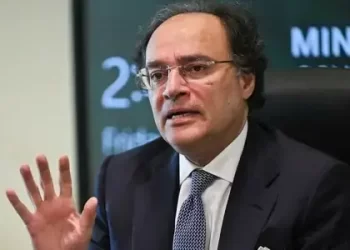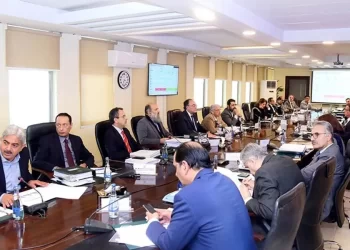ISLAMABAD: The International Monetary Fund (IMF) has urged Pakistan for continued enhancements in the Anti-Money Laundering and Counter Terrorist Financing (AML/ CFT) framework to detect, prevent, and deter the laundering of proceeds from high-risk crimes (e.g., tax evasion, smuggling and corruption) and enhance financial inclusion.
The Fund in its latest report stated that strengthening AML/CFT effectiveness will help detect, prevent, and deter the laundering of proceeds from high-risk crimes (e.g., tax evasion, smuggling and corruption) and enhance financial inclusion. Efforts should focus on deepening inter-agency coordination by the new National AML/CFT Authority, risk-based supervision, effective implementation of AML/CFT measures, particularly, risk-based customer due diligence and enforcement against trade-based money laundering, and enhancing verification of beneficial ownership information.
The Fund stated that efforts to promote financial deepening, strengthen financial inclusion, and enhance the effectiveness of AML/CFT measures should increase. In order to improve credit to the private sector, legal and regulatory reform should be contemplated to strengthen enforcement of claims, enforceability of collateral, and debt collection.
Deepening of the capital markets, particularly taking steps to develop insurance and private pension sectors, can play a catalytic role in expanding the financing base for both the government and the private sector.
Implementation of SBP’s comprehensive strategy to address high levels of Non-Performing Loans (NPLs) will encourage banks to charge-off fully provisioned NPLs and transfer non-performing assets to corporate restructuring companies. Ongoing efforts to strengthen financial inclusion, as well as, digitalisation and documentation can bolster intermediation and efficiency.
Effective risk-based use of AML/CFT measures should help prevent and detect fiscal leakages from tax evasion and smuggling, prevent the abuse of the financial system, and enhance financial inclusion.
The authorities stated that they continue to enhance the effectiveness of the system to combat money laundering and terrorist financing. The recently established National AML/CFT Authority will be the focal point for facilitating cooperation and overseeing the implementation of the national AML/CFT strategy.
“We will ensure effective coordination among relevant agencies (such as Financial Monitoring Unit, FBR, National Accountability Bureau, and Provincial Anti-Corruption Establishments) and stakeholders (including the private sector) to better combat money laundering, terrorist financing, proliferation financing and other predicate crimes (including corruption, tax evasion, smuggling, and cash smuggling) identified in the 2023 National Risk Assessment (NRA),” the authorities pledged.
On trade-based money laundering (TBML), the SBP has imposed nominal sanctions (amounting to Rs 242 million in fines and other administrative actions such as warnings and forfeiture of bonuses) against several banks for violations involving TBML of solar panels and is revising its risk-based supervisory framework to align with the NRA (including ensuring that sanctions are effective, proportionate, and dissuasive). With support from the Asian Development Bank, the Financial Monitoring Unit is strengthening its financial intelligence capacities within its GoAML system to identify risks of TBML.
“We will pursue efforts to ensure transparency of beneficial ownership information consistent with the Financial Action Task Force standards. In this regard, the SECP continues to increase compliance with beneficial ownership information requirements by registered companies (now at 30 percent) and exerting efforts to ensure risk-based verification of the information”, the authorities committed to the Fund.
Copyright media, 2024









